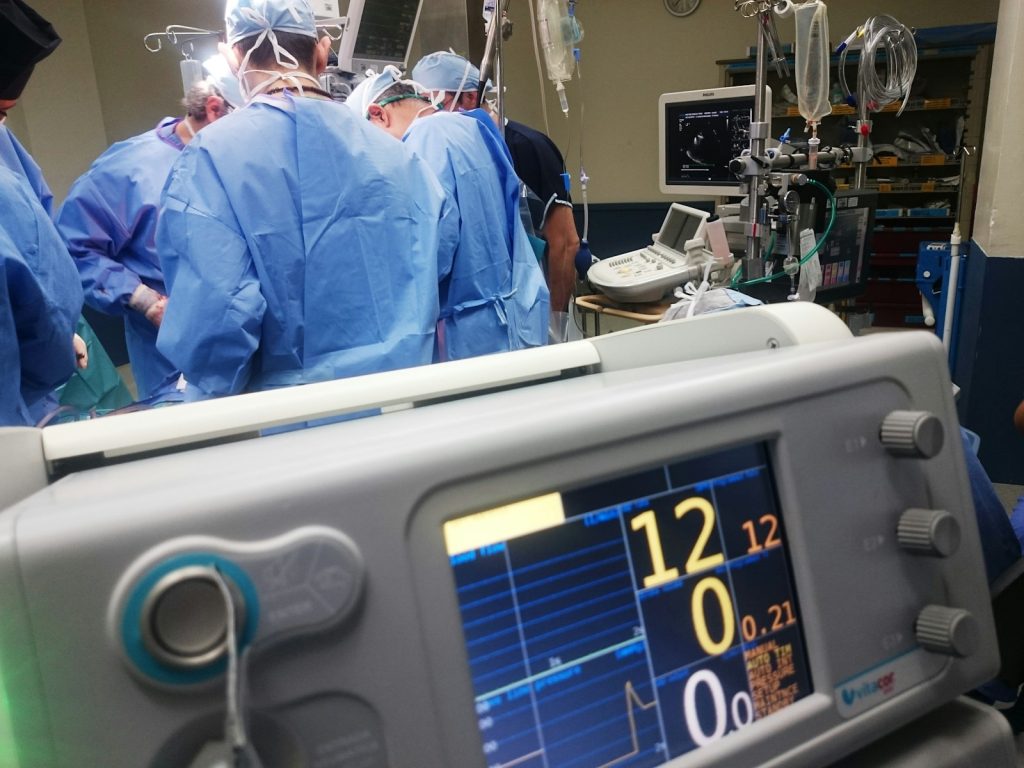Insurance claim investigations are a crucial part of the healthcare industry. They ensure that claims made by patients and healthcare providers are accurate, legitimate, and compliant with policy terms.
With healthcare costs rising and fraud becoming more sophisticated, these investigations help safeguard financial integrity and maintain trust between insurers and policyholders.
They involve a thorough examination of the claim, including verifying the details provided, assessing medical records, and sometimes conducting interviews or surveillance to confirm the validity of the claim.
Whether you are a healthcare provider, insurance professional, or policyholder, understanding the importance of these investigations can help you navigate the complexities of healthcare claims more effectively.
The Insurance Claim Process in Healthcare
The insurance claim process begins when a policyholder files a claim with their insurance company.
This typically involves submitting a claim form along with necessary documentation, such as medical records and receipts.
The insurance company then reviews the claim to determine its validity. This process can include multiple steps, such as:
Initial Review: The claim is assessed for completeness and accuracy.
Detailed Assessment: Medical records and other documentation are scrutinized.
Investigation: If discrepancies are found, a deeper investigation is initiated.
Approval or Denial: Based on the findings, the claim is either approved or denied.
Each of these steps is crucial in ensuring that only legitimate claims are paid out, preventing fraud and financial losses.
Common Types of Insurance Claims
In healthcare, several types of insurance claims are commonly filed, such as:
Medical Claims: These include claims for treatments, surgeries, medications, and other healthcare services.
Disability Claims: These are filed by individuals who are unable to work due to a medical condition or injury.
Workers’ Compensation Claims: For injuries or illnesses sustained in the workplace.
Understanding the differences between these claims is important, as each type has its own set of requirements and processes.
The Need for Insurance Claim Investigations
Preventing Fraud
Healthcare fraud is a significant issue, with billions of dollars lost annually. Common fraudulent activities include:
- Billing for services not rendered
- Upcoding (charging for a more expensive service than was provided)
- Submitting duplicate claims
For example, in 2019, a case involving a network of telemedicine companies resulted in over $1 billion in fraudulent claims to Medicare.
Such cases highlight the critical need for thorough claim investigations to detect and prevent fraud.
Ensuring Accuracy and Accountability
Accuracy in insurance claims is vital. Incorrect information can lead to denied claims, financial losses, and legal issues.
Consider a case where a healthcare provider incorrectly billed for services, leading to a patient’s claim being denied. This not only caused financial stress for the patient but also damaged the provider’s reputation.
Investigations help to ensure that all information is accurate and that providers and patients are held accountable for any discrepancies.
Cost Control and Financial Impact
Fraudulent and inaccurate claims significantly impact the cost of healthcare.
Insurance companies bear the financial burden, which are often passed on to consumers in the form of higher premiums.
A study by the National Health Care Anti-Fraud Association (NHCAA) estimated that healthcare fraud costs the industry tens of billions of dollars annually.
Effective investigations help to mitigate these costs by identifying and preventing fraudulent claims before they are paid out.
Key Components of an Effective Investigation
Verification of Information
One of the primary steps in an insurance claim investigation is the verification of information. This involves confirming the accuracy of personal details, medical records, and the circumstances surrounding the claim.
Insurance investigation specialists play a crucial role here, utilizing various tools and techniques to authenticate information.
For instance, they might cross-check the provided medical history with actual records from healthcare providers. Accurate verification is essential to avoid costly errors and ensure that only legitimate claims are processed.
Interviews and Surveillance
Interviews and surveillance are often employed to gather additional evidence and verify the authenticity of a claim.
For this, the investigators may interview the claimant, healthcare providers, and witnesses to gather a comprehensive understanding of the case.
In cases of suspected fraud, surveillance can be a powerful tool.
For example, an investigation into a disability claim might involve surveillance to confirm whether the claimant’s reported condition matches their daily activities.
Medical Record Review
A thorough review of medical records is another key component of an effective investigation. This involves analyzing the provided medical documentation for inconsistencies, discrepancies, or signs of tampering.
For example, in one case, an investigation revealed that a claimant had submitted altered medical records to support a false claim.
By meticulously examining these records, investigators can identify anomalies that might indicate fraud, ensuring that only valid claims are approved.
The Role of Insurance Claim Investigation Companies
Expertise and Resources
The insurance claim investigation companies bring specialized expertise and resources to the table.
These companies have access to advanced databases, forensic tools, and a network of industry experts, enabling them to conduct thorough and efficient investigations of claims in Healthcare sector.
For instance, they might uncover a history of fraudulent activity by a claimant, providing critical evidence to support the denial of a questionable claim.
Consulting a reputable insurance claim investigation company can significantly enhance the effectiveness of insurance claim investigations.
Tools and Technology
The use of advanced tools and technology is crucial in modern insurance claim investigations.
Data analytics, artificial intelligence (AI), and machine learning are increasingly being used to detect patterns and anomalies in claims data.
For example, AI can analyze vast amounts of data to identify suspicious claims that warrant further investigation.
In one notable case, an insurance company used AI to detect a network of fraudulent claims submitted by a group of providers, leading to a significant reduction in fraudulent payouts.
Leveraging such technologies can greatly improve the accuracy and efficiency of investigations.
Legal and Ethical Considerations
Regulatory Compliance
Adhering to regulatory compliance is essential in insurance claim investigations. Various laws and regulations govern the handling of insurance claims and patient information, such as the Health Insurance Portability and Accountability Act (HIPAA).
Failure to comply with these regulations can result in severe legal consequences, including fines and sanctions.
For instance, a healthcare provider was fined millions of dollars for violating HIPAA regulations during an investigation.
Ethical Concerns
Balancing thorough investigations with ethical considerations is a critical aspect of insurance claim investigations.
Investigators must ensure that their methods do not infringe on patient privacy or violate ethical standards.
For example, while surveillance can be an effective tool, it must be conducted within legal and ethical boundaries to avoid privacy violations.
Upholding ethical standards helps to maintain trust and credibility in the investigation process.
Challenges in Insurance Claim Investigations
Complexity of Medical Information
Interpreting medical information accurately can be a complex and challenging task in insurance claim investigations.
Medical terminology, varying standards of documentation, and the sheer volume of records can make it difficult to identify discrepancies.
For instance, in a case where a claimant had multiple overlapping medical conditions, the investigation may face delays due to the complexity of the medical information involved.
Specialized knowledge and expertise are essential to navigate these complexities and ensure accurate assessments.
Cooperation from Healthcare Providers
Obtaining cooperation from healthcare providers can be another significant challenge that most companies face.
Healthcare providers may be reluctant to share detailed information due to privacy concerns or administrative burdens.
Establishing clear communication channels and ensuring that providers understand the importance of their cooperation can help mitigate these challenges.
Future Trends in Insurance Claim Investigations
Advancements in Technology
The future of insurance claim investigations is likely to be shaped by advancements in technology.
Emerging technologies such as blockchain, AI, and machine learning have the potential to revolutionize the way investigations are conducted.
For instance, blockchain technology can enhance transparency and security in claims processing, making it easier to detect and prevent fraud.
Similarly, AI and machine learning can automate the analysis of large datasets, identifying patterns and anomalies with greater accuracy.
Increasing Collaboration
Collaboration between insurers, healthcare providers, and background verification companies is becoming increasingly important in combating healthcare fraud.
By working together, these stakeholders can share information, resources, and expertise, leading to more comprehensive and effective investigations.
Promoting such collaborations can significantly enhance the ability to detect and prevent fraudulent claims.
Conclusion
Insurance claim investigations play a vital role in maintaining the integrity of the healthcare system. They help prevent fraud, ensure accuracy and accountability, and control costs.
Key components of effective investigations include verification of information, interviews and surveillance, and medical record reviews.
Insurance claim investigation companies can offer specialized expertise and advanced tools that can greatly enhance the investigation process.
Partnering with AMS Inform
Given the complexity and importance of Insurance claim investigations, many organizations prefer to collaborate with AMS Inform. Established in 1986, AMS Inform brings over 38 years of expertise in the background verification industry.
Our team specializes in various types of Insurance claim investigations, along with Digital ID Verification, identity verification, educational verification, and pre/post-employment verification. We also offer credit checks, health and drug checks, and language translation services.
By partnering with AMS Inform, you save time and ensure compliance with all relevant laws and regulations. With a presence in over 160 countries and local teams in 16 of them, we can effectively support your operations globally.
As part of the NASSCOM and PBSA family, we are dedicated to protecting the health and reputation of your business.
Contact our team today for personalized solutions tailored to your Insurance claim investigation requirements.
















